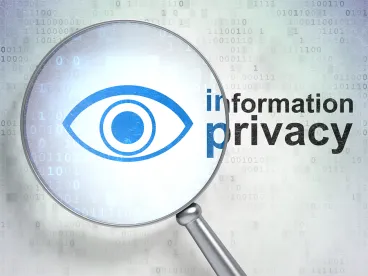Legislative Activity
Sen. Thune Introduces FCC Reauthorization Act
On March 7, Sen. John Thune (R-SD), Chairman of the Senate Commerce, Science & Transportation Committee (Senate Commerce Committee) introduced S.2644, the FCC Reauthorization Act of 2016. The bill would reauthorize the Federal Communications Commission (FCC), which has not been reauthorized since 1990, and would authorize appropriations for Fiscal Year (FY) 2017 and FY 2018 in the amounts of $361.1 million for FY17 and $348.7 million for FY18. For FY17, no more than $16.867 million “shall remain available until expended for necessary expenses of the Commission associated with moving to a new facility or reconfiguring the existing facility to significantly reduce space consumption.” The bill also makes significant appropriations for salaries and expenses for the Office of Inspector General (OIG) of the FCC.
The bill also does the following:
-
Clarifies that all FCC commissioners, whether appointed to a full five-year term or to fill a vacancy that occurs during a term, may remain at the FCC beyond a term’s expiration until a successor is appointed and has been confirmed;
-
Requires the FCC to submit various documents such as budget estimates and legislative recommendations to Congress as a means of enhancing transparency;
-
Requires a Government Accountability Office (GAO) report that will include an analysis of whether the FCC’s current regulatory fee structure correlates to the actual workload of the FCC;
-
Requires that deposits that the FCC requires as a precondition of bidding in any spectrum auction to be deposited directly with the United States of any entity to bid in a spectrum auction to be deposited with the U.S. Department of the Treasury (a version of this provision was introduced in the Senate in December 2015 as S.2319);
-
Avoids disrupting funding for various Universal Service Fund (USF) mechanisms; and
-
Indefinitely extends a prohibition that blocks the FCC from implementing a 2004 recommendation of the USF Joint Board proposing to limit USF funds to a single line per household.
The Senate Commerce Committee has scheduled a markup of the bill for Wednesday, March 16.
Senate Commerce Committee Approves MOBILE NOW Act
On March3, the Senate Commerce Committee approved S.2555, the Making Opportunities for Broadband Investment and Limiting Excessive and Needless Obstacles to Wireless (MOBILE NOW) Act by voice vote. The legislation, the substance of which was previously discussed in detail here, specifically targets the buildout of next-generation 5G wireless broadband by ensuring that more spectrum is made available for commercial use. The bill passed the Senate Commerce Committee amendments, including one that would ensure that least 100 MHz of newly freed spectrum would be available for unlicensed uses and that another 100 MHz would be specifically available for commercial mobile services. The bill now goes to the full Senate for consideration.
Bill on Unwanted Robocalls and Texts Introduced in House
On March 4, Ranking Member of the Communications and Technology Subcommittee of the House Energy and Commerce Committee (House Commerce Committee) Anna Eshoo (D-CA) introduced H.R.4682, the Help Americans Never Get Unwanted Phone Calls Act of 2016 (HANGUP Act). The bill rescinds a provision of the Bipartisan Budget Act of 2015 that exempted debt collectors from laws prohibiting them from robocalling mobile phones of consumers who have a debt owed or guaranteed by the federal government without consent. Specifically, the bill would protect anyone with federal loans, including student loans, mortgages, veterans loans, and farming loans from unwanted robocalls and texts to their mobile phones. The bill has been referred to the House Commerce Committee for consideration.
Legislation Amending the CAN-SPAM Act Introduced in House
On March 3, Rep. Kathleen Rice (D-NY) introduced H.R.4709, the Unsubscribe from All Act of 2016. The bill makes amendments to a 2003 law known as the Controlling the Assault of Non-Solicited Pornography and Marketing Act or CAN-SPAM Act, which was the legislative response to a large number of complaints over spam e-mails at the time of its passage, requires, among other things, that all commercial emails contain a visible and operable unsubscribe mechanism. Rep. Rice’s bill amends the CAN-SPAM Act to require that the process of unsubscribing from all of a company’s commercial emails would involve no more than two clicks on the part of the recipient. Importantly, the bill also requires that all commercial e-mails contain an option that allows recipients to unsubscribe from all future communications from that sender. The bill has been referred to the House Commerce Committee.
This Week’s Hearings:
-
Tuesday, March 15: The Senate Commerce Committee will hold a hearing entitled “Hands Off: The Future of Self-Driving Cars.”
-
Thursday, March 17: The Communications & Technology Subcommittee of the House Commerce Committee will hold a hearing entitled “Privatizing the Internet Assigned Number Authority.”
Regulatory Activity
FCC Announces Tentative Agenda for March 31 Open Meeting
The FCC on March 10 released a Public Notice announcing that the following items are tentatively on the agenda for the FCC’s March 31 Open Meeting:
-
Protecting the Privacy of Customers of Broadband Services: As discussed further below, the FCC will consider a Notice of Proposed Rulemaking “seeking comment on a framework for ensuring that consumers have the tools they need to make informed choices about how their data is used and when it is shared by broadband providers.”
-
Providing Affordable Broadband for Low-Income Americans: As discussed further below, the FCC will consider an item to “comprehensively restructure and modernize the Lifeline Program to efficiently and effectively connect low-income Americans to broadband” and “strengthen program oversight and administration.”
-
Expanding Access to Video Programming for Blind or Visually Impaired Americans: The FCC will consider a Notice of Proposed Rulemaking that “seeks comment on proposals to expand the amount of and access to video programming, for the benefit of consumers who are blind or visually impaired.”
The FCC’s March 31 Open Meeting is scheduled to commence at 10:30 a.m. in Room TW-C305 of the FCC’s headquarters at 445 12th Street S.W., Washington, D.C. The meeting is open to the public and will be streamed live at fcc.gov/live.
FCC Chairman Wheeler Circulates Proposed Broadband Privacy Rules
On March 10, the FCC released a Fact Sheet stating that “FCC Chairman Tom Wheeler has circulated for consideration by the full Commission a Notice of Proposed Rulemaking (NPRM) to ensure consumers have the tools they need to make informed choices about how and whether their data is used and shared by their broadband providers.” The Fact Sheet states that “[e]very day, consumers hand over very personal information simply by using residential or mobile broadband services” because “ISPs can collect customers’ personal and private information to create detailed profiles about their lives.” It states further that “[c]onsumers should have effective control over how their personal information is used and shared by their broadband service providers.”
Specifically, the draft rules would create “three categories” of “use and sharing of information” by broadband providers. First, any “customer data necessary to provider broadband services and for marketing the type of broadband service purchased by a customer would require no additional customer consent beyond the creation of the customer-broadband provider relationship.” Second, broadband providers would be allowed to use and share with affiliates customer data for “marketing other communications-related services . . . unless the customer affirmatively opts out.” Third, all “other uses and sharing of consumer data would require express, affirmative ‘opt-in consent from customers.’” The draft rules would also implement “robust and flexible data security requirements for broadband providers, including an overarching data security standard,” and establish “common-sense data breach notification requirements” including requiring that broadband providers notify affected customers of breaches of their data “no later than 10 days after discovery.” Moreover, the FCC would be notified no later than 7 days after discovery, and certain law enforcement officials no later than 7 days after discovery in the case of a breach affecting more than 5,000 consumers.
The proposal will be voted on by the FCC at its March 31 Open Meeting and, if adopted, would request public comment on the proposed rules.
FCC, Verizon Settle “Supercookie” Probe
The FCC announced on March 7 that the Enforcement Bureau (EB) had reached a settlement with Verizon Wireless (VZW) to resolve an investigation into the company’s “practice of inserting unique identifier headers [(UIDH)] or so-called ‘supercookies’ into its customers’ mobile Internet traffic without their knowledge or consent” for the purpose of “creat[ing] profiles in order to serve advertisements,” according to a News Release and an Order and Consent Decree (Consent Decree). This is the second Open Internet enforcement action from the communications regulator, and demonstrates that the FCC’s new focus on data security and privacy continues to intensify, even as other regulators – such as the Consumer Financial Protection Bureau – join the race to protect consumer information online.
EB’s investigation “sought to determine Verizon Wireless’s compliance with Section 222 of the Communications Act” and the “Open Internet Transparency Rule.” According to the Commission’s action, Section 222 “imposes a duty on carriers to protect their customers’ proprietary information.”. As noted in the Consent Decree, the Open Internet Transparency Rule requires “every fixed and mobile broadband Internet access service provider to ‘publicly disclose accurate information regarding the network management practices, performance, and commercial terms of its broadband Internet access services sufficient for consumers to make informed choices.”
EB’s investigation found that “although [VZW] began inserting UIDH into consumers’ Internet traffic as early December 2012, [VZW] did not disclose this practice until October 2014,” that “at least one of [VZW’s] advertising partners used UIDH for unauthorized purposes,” and that VZW had “inserted UIDH into the Internet traffic [on lines] ineligible to participate in Verizon Wireless’s targeted advertising programs.” To settle the investigation, VZW will pay $1,350,000 and “implement a compliance plan that requires it to obtain customer opt-in consent prior to sharing a customer’s UIDH with a third party to deliver targeted advertising.” The Consent Decree notes that VZW “cooperated with the [EB’s] investigation.”
FCC Chairman Wheeler Circulates Order to “Modernize Lifeline Program to Provide Affordable Broadband for Low-Income Americans”
On March 8, the FCC released a Fact Sheet discussing “an Order to modernize the FCC’s Lifeline program [by] making broadband more affordable for low-income consumers,” which Chairman Wheeler has circulated to the other Commissioners for a vote by the full FCC’s Open Meeting on March 31. The Lifeline program is a government subsidy program that provides discounted phone service to qualifying low-income consumers. The Fact Sheet states that “affordability [is] still the largest single barrier to broadband adoption in low-income households,” and that Lifeline “must evolve to meet today’s most pressing communications need: access to broadband.”
Principally, the draft Order proposes that “low income consumers could apply the $9.25 per month support to stand-alone broadband service as well as bundled voice and data service packages,” according to the Fact Sheet. The Fact Sheet further states that the Order would “encourage wide participation in the program by broadband providers, giving consumers competitive service options,” and would require minimum service standards to “ensure that supported service meet modern needs.” Additionally, the Order would establish a “National Eligibility Verifier to further deter waste, fraud and abuse” and implement a “budget mechanism [to] limit Lifeline’s cost to ratepayers.”
Chairman Wheeler and Commissioner Clyburn, who worked closely together in developing the draft Order, also posted to the FCC Blog discussing the item.





 />i
/>i

